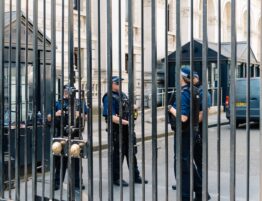
It is sometimes the case in the immigration field that the basic law sets out very broad principles and other policies, rules or laws provide the detail.
For example, the British Nationality Act 1981 simply tells us that a successful applicant for British naturalisation must be of “good character”. This sounds intuitively reasonable, but how might we define “good character”? Generally speaking, in immigration law “good character” does not mean exactly what it says: what it means is “lack of bad character”, which is not quite the same thing.
To take the most obvious example, if somebody has criminal convictions they may fail to meet a good character requirement. And, indeed, the Home Office’s published policy documents say that if somebody has a criminal conviction(s) this may prevent them from making a successful British naturalisation application. It depends on the severity of the offence and how long ago the conviction occurred.
Policies of this kind might not necessarily be seen as unfair. British citizenship is, as it were, the highest status in UK immigration law and, as the Home Office often reminds us, holding British citizenship is a great privilege and honour.
But some other policies go rather deeper. Breaches of immigration requirements (eg overstaying) are taken into account for the period of ten years before the date of the naturalisation application and may result in a refusal. Such breaches are, generally speaking, criminal offences but very few people get prosecuted, so these policies punish the applicant for things which are typically less than criminal convictions.
It sometimes happens, for example, that a person comes to the UK and acquires a complicated immigration history which involves breach of immigration conditions. But eventually they manage to acquire immigration status, in one way or another, and then eventually settlement, and then they might be interested in British naturalisation.
They might imagine that by this stage their slate is “wiped clean” but of course this is not necessarily the case if any transgressions occurred within the last ten years of the date they apply for naturalisation. Some applicants who have not instructed lawyers can fall into this trap and it is very disappointing for them.
But can you challenge a refusal decision of this kind? Well, you can. Mr Mohammad Al-Enein, a man of Palestinian origin, did so and his case got as far as the Court of Appeal. He met all the other requirements for British naturalisation when he applied in 2015 but he fell foul of the ten-year/breach of immigration conditions policies which, under the version in force at the time, stated:
“The decision maker will normally refuse an application if within the 10 years preceding the application the person has not been compliant with immigration requirements, including but not limited to having: (a) failed to report (b) failed to comply with any conditions imposed under the Immigration Acts (c) been detected working in the UK without permission.” (The current version of the policies has a few differences but is broadly similar.)
His lawyers argued – quite obviously correctly – that the Home Office’s published policies were no more than policies and that they had not been approved by Parliament and they thus did not have Parliament’s imprimatur. They also argued – but more controversially – that the policies were too draconian and they did not fit in proportionately within the good character requirement in the Act of Parliament.
Their argument was thus a classic one: that the subsidiary legal provisions were outside the authority of the primary legislation. (Those who are into legal Latin will be familiar with the term “ultra vires”.)
The court stated the “fundamental principle” that “the executive [ie the Home Office/Home Secretary] cannot act in a way which is inconsistent with the will of Parliament”. Anyone who reads the papers and the Brexit Saga will have read a lot in the last couple of years about the “sovereignty of Parliament”, which is clearly a real and powerful thing. So the principle as stated by the court sounds right.
But, unfortunately for Mr Al-Enein, what followed clearly indicated that the court thought that the Home Office was not acting in a way which was inconsistent with the will of Parliament.
The court said, amongst other things, that “… there is no reason in law why the Secretary of State cannot impose an additional or extended requirement relating to breach of immigration laws as properly being a matter which is relevant to the more general question of good character”. The court did not specifically state that the ten-year penalty period was reasonable and proportionate but evidently they thought it was.
It may be worth noting that a ten-year penalty is a fairly standard measure in immigration law: for example, there is a ten-year visa ban for those who are deemed to have exercised deception in a visa application. Again, the court did not refer to this, but it might provide some context and might also suggest that the court’s decision is unlikely to be susceptible to challenge in the Supreme Court.
So Mr Al-Enein was unsuccessful. We feel constrained to advise that a British naturalisation application, although in many cases straightforward, is not always so, and it might be a good idea to instruct a good lawyer, especially if there are any complex facts or circumstances.








